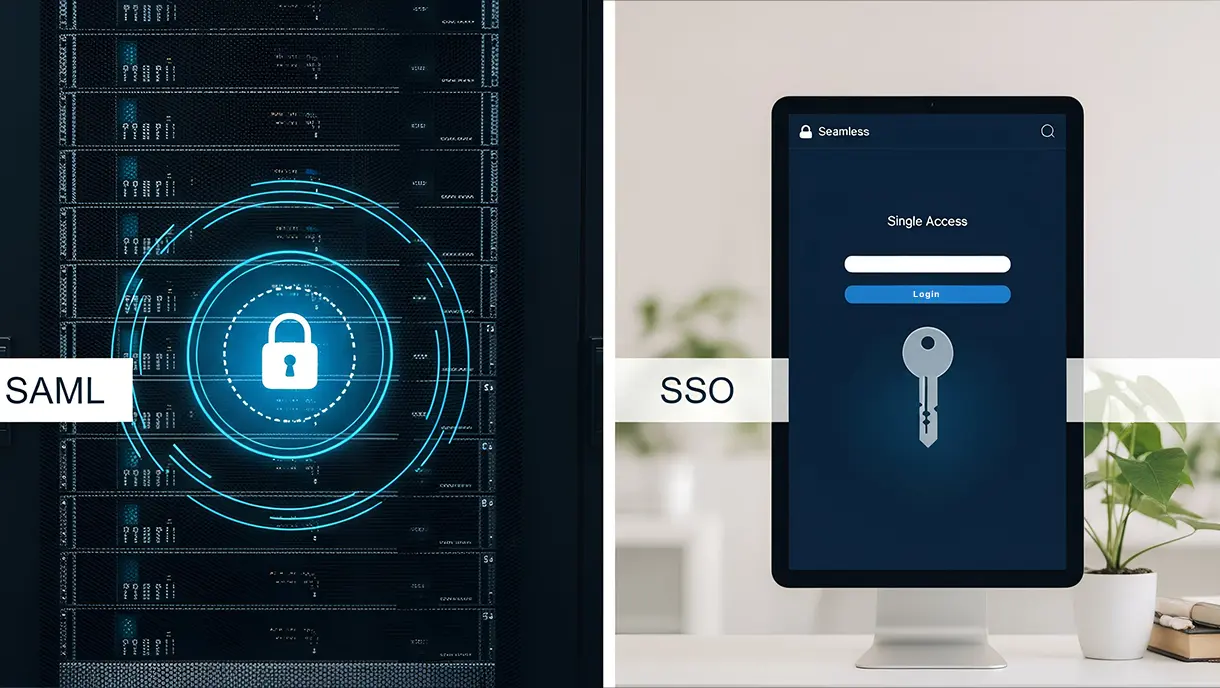Wage Theft vs Time Theft: Understanding the Difference and How to Prevent Both
Wage theft and time theft represent opposing workplace violations that erode trust and productivity. This guide clarifies the distinction between employer-driven wage violations and employee time manipulation. Explore common examples of each, understand their legal and ethical implications, and discover how they damage workplace culture.

Wage and time theft may sound like small payroll issues, but for many organizations, they quietly drain profits, damage trust, and expose businesses to compliance risks. According to the Economic Policy Institute, the U.S. Department of Labor recovered nearly $700 million in stolen wages for workers between 2021 and 2023, underscoring the widespread and costly nature of this problem.
Whether it’s unpaid overtime, off-the-clock work, or employees clocking in for each other, these practices distort the real picture of productivity and fairness in the workplace. For HR leaders, operations heads, and compliance managers, the challenge goes beyond detecting theft. It’s about building systems that ensure transparency, accountability, and trust.
With modern workforce technologies like biometric time tracking and unified identity management, businesses now have the tools to eliminate guesswork and create a culture rooted in fairness and efficiency.
In this blog, we’ll explore what wage and time theft really mean, how they impact organizations, and the best practices to prevent them. Get actionable steps to protect both your workforce and your business from time and wage theft.
What Is Wage Theft?
Wage theft occurs when employers deny workers the pay they’ve rightfully earned. It can take many forms, such as unpaid overtime, forcing employees to work off the clock, withholding final paychecks, or taking illegal wage deductions. In simple terms, it’s any action that prevents employees from receiving full and fair compensation for their labor.
Unlike clerical payroll mistakes, wage theft is often a violation of labor laws and can have serious financial and legal consequences for employers. It undermines employee trust, damages workplace morale, and exposes organizations to compliance risks.
Common Examples of Wage Theft
Wage theft takes place in various forms across different workplace settings. Understanding these common scenarios helps organizations identify and prevent violations.
1. Not Paying Overtime Wages
Employers require work beyond 40 hours without proper time-and-a-half compensation. This violation directly contradicts Fair Labor Standards Act requirements for non-exempt employees. Workers lose significant income when overtime hours are paid at regular rates or not at all.
2. Misclassifying Employees as Contractors
Organizations label employees as independent contractors to avoid paying benefits and payroll taxes. This misclassification denies workers overtime pay, health insurance, and unemployment protection. The practice saves employers money while harming employee financial security and legal protections.
3. Deducting Pay for Breaks Not Taken
Employers automatically subtract break time from timesheets regardless of whether employees actually took breaks. Workers effectively provide free labor during these deducted periods while remaining on duty. This practice becomes especially problematic in high-pressure environments where breaks are frequently skipped.
4. Withholding Tips or Bonuses
Employers keep gratuities meant for service staff or fail to pay earned performance bonuses. These practices violate both contractual obligations and labor regulations protecting tip income. Workers lose substantial portions of their expected compensation through these withholdings.
Legal and Financial Consequences
Wage theft violations carry severe penalties that extend far beyond the simple requirement of back pay. Organizations face escalating consequences, including lawsuits, regulatory fines, and lasting reputational damage that affects recruitment and customer relationships.
Key Consequences Include:
- Back pay requirements, including interest, for all affected employees.
- Liquidated damages equal the amount of unpaid wages.
- Civil penalties range from thousands to millions of dollars, depending on the severity of the offense.
- Criminal charges in cases of willful or repeated violations.
- Legal fees and court costs quickly exceed the original wage amounts.
- Reputation damage that harms recruitment efforts and customer trust.
- Increased regulatory scrutiny and more frequent labor audits.
What Is Time Theft?
Time theft happens when employees are paid for time they didn’t actually work, whether intentionally or unintentionally. It’s the opposite of wage theft, and while it may not always break the law, it directly impacts a company’s productivity and bottom line.
Time theft can take many forms. Some employees may clock in early or clock out late without working, while others may take extended breaks, handle personal tasks during work hours, or even have coworkers punch in for them (known as buddy punching).
In remote or hybrid environments, time theft can also occur through idle time disguised as active work or false activity reports. Even small instances of lost time can accumulate into substantial operational costs, lowering efficiency, increasing payroll expenses, and affecting overall team morale.
Common Examples of Time Theft
Time theft takes multiple forms, ranging from minor infractions to deliberate fraud. Organizations lose significant resources through these practices regardless of whether they're intentional or accidental.
1. Buddy Punching
One employee clocks in or out for an absent coworker using their credentials. This practice constitutes outright fraud that costs organizations billions of dollars annually by submitting completely fabricated time entries. Buddy punching undermines the entire time tracking system and creates unfair advantages for dishonest workers.
2. Extended Breaks or Personal Tasks During Work Hours
Employees take longer lunches than allowed or handle personal errands while on the clock. These extra minutes may seem insignificant individually, but they accumulate into substantial productivity losses for the organization as a whole. Workers receive full compensation while delivering reduced actual work output.
3. False Time Entries in Remote Work Setups
Remote employees report hours not actually worked or inflate the time spent on specific projects. Distance and lack of direct supervision create opportunities for dishonest time reporting. Organizations struggle to verify actual work hours without intrusive monitoring, which can damage trust.
Impact on Employers and Teams
Time theft creates cascading problems that extend beyond immediate payroll losses. The practice damages team morale, operational efficiency, and the fundamental trust between employers and employees throughout the organization.
Key Impacts Include:
- Direct payroll losses from paying for work never performed.
- Reduced productivity, affecting project timelines and customer deliverables.
- Lower morale among honest employees who witness unfair practices.
- Increased workload on reliable team members compensating for absent colleagues.
- Management time is diverted to monitoring and investigating discrepancies in time.
- Complex detection challenges, balancing oversight with employee privacy.
- Erosion of trust is making it harder to implement flexible work arrangements.
This overview covers the basics of wage theft and time theft. Next, let’s compare these two concepts head-to-head.
Quick Comparison of Wage Theft and Time Theft
While both time theft and wage theft involve workplace misconduct, they operate from opposite directions with different perpetrators and victims. This comparison highlights the contrasting nature of these violations and their distinct implications.
Both wage theft and time theft stem from a lack of transparency and accountability, but their causes, consequences, and responsibilities differ greatly. Understanding these differences is essential for building fair and compliant workplace practices.
[[cta]]
Wage Theft vs Time Theft: Key Differences
While both wage theft and time theft involve unfair use of time or compensation, the intent, impact, and accountability behind each are fundamentally different. Exploring these distinctions in detail helps employers and employees understand their responsibilities and maintain a fair, compliant workplace.
1. Who Commits It
Wage theft stems from employer actions or systemic failures. Management decisions, payroll errors, or deliberate underpayment can lead to these violations. The organization holds responsibility for ensuring proper compensation practices.
Time theft originates from employee behavior and lapses in accountability. Individual workers manipulate time records or work schedules for personal gain. The responsibility lies with employees to report accurate work hours.
2. Who Is Affected
Wage theft directly harms employees who lose the compensation they have earned. Workers struggle financially when denied proper payment for their labor. The impact extends to families who depend on accurate wages.
Time theft primarily affects employers through lost productivity and inflated costs. Organizations pay for work never completed while maintaining operational expectations. The financial burden falls on the business and indirectly on honest employees.
3. Legal vs Ethical Dimensions
Wage theft constitutes a clear legal violation with enforceable penalties. Federal and state laws mandate specific compensation standards and overtime rules. Violations can trigger lawsuits, fines, and, in severe cases, lead to criminal charges.
Time theft represents primarily an ethical or disciplinary workplace issue. No specific federal laws address employee time manipulation directly. Organizations handle these violations through internal policies rather than legal prosecution.
Recognizing the differences between wage theft and time theft is only the first step. Next, let’s explore how these behaviors can damage the foundation of a healthy work environment.
Why Wage and Time Theft Are Damaging to Workplace Culture
Both forms of theft create unhealthy workplace environments that extend far beyond financial losses. Trust deteriorates when either employers or employees fail to uphold fundamental fairness expectations.
1. Erosion of Trust Between Employees and Employers
Trust forms the foundation of productive employment relationships, and both types of theft systematically destroy it. When basic obligations around time and compensation are violated, suspicion replaces cooperation. The resulting environment makes collaboration challenging and fosters defensive behaviors, ultimately reducing overall effectiveness.
2. Lower Engagement and Productivity
Perceptions of fairness have a direct impact on employee engagement and organizational productivity. Workers who experience or witness theft tend to disengage from company goals and deliver minimal effort. The resulting productivity loss typically exceeds the direct financial cost of the theft itself.
3. Reputation and Compliance Risks
Workplace theft of either type signals broader organizational dysfunction to external stakeholders. Wage theft violations attract regulatory attention and media coverage that damages an employer's brand. Time theft patterns indicate weak management and inadequate operational controls, which concern clients and partners.
Addressing wage and time theft is the first step toward restoring fairness and trust, but lasting change comes from proactive prevention. Let’s look at the best practices that can help your organization stop these issues before they start.
[[cta-2]]
Best Practices to Adopt for Preventing Wage and Time Theft
Preventing wage and time theft violations requires combining technology, clear policies, and cultural accountability. Organizations that successfully eliminate wage and time theft implement systematic approaches that address the root causes of these issues.
Best Practices to Prevent Wage Theft
Wage theft prevention centers on automation, transparency, and regular verification of compensation accuracy. These practices protect employees while shielding organizations from legal liability and reputation damage.
1. Establish Transparent Payroll and Overtime Policies
Create comprehensive written documentation defining all compensation rules, including overtime eligibility and break policies. Communicate these policies clearly during onboarding and refresh them regularly through team meetings to ensure consistency and clarity. Require a signed acknowledgment ensuring every employee understands how their pay is calculated.
2. Automate Payroll and Attendance Integration
Implement payroll software that synchronizes directly with smart time-clock systems, eliminating the need for manual data entry. Configure automated overtime calculations that flag when the threshold is approaching, ensuring premium pay is applied correctly. Direct integration prevents the transcription errors and omissions that often lead to most wage theft situations.
3. Conduct Regular Payroll Audits
Schedule quarterly reviews comparing attendance records, overtime approvals, and actual wage payments for discrepancies. Use independent auditors or cross-functional teams to ensure objective evaluation of compensation practices. Document all findings and corrective actions for compliance demonstration and continuous improvement.
4. Train HR and Managers on Wage Compliance Laws
Provide comprehensive education covering minimum wage laws, overtime regulations, and permissible deductions. Update training annually as regulations evolve and new case law establishes precedents. Ensure supervisors understand that compensation decisions require HR consultation rather than independent action.
5. Maintain Documentation and Audit Trails
Preserve detailed records of timesheets, approval workflows, and wage calculations for legally mandated retention periods. Implement digital systems with automated backup, preventing record loss or unauthorized modification. Organized documentation proves invaluable when defending against accusations or responding to regulatory inquiries.
6. Provide Employees with Transparent Access to Pay Information
Deploy employee self-service portals, allowing workers to review timesheets and pay statements anytime. Establish non-punitive channels that encourage employees to report discrepancies promptly for swift resolution. Transparency enables crowdsourced verification while building trust through openness about compensation calculations.
Best Practices to Prevent Time Theft
Time theft prevention strikes a balance between accountability and respect for employee privacy and dignity. Practical approaches combine technology that verifies identity with cultural elements that make honesty the norm.
1. Use Biometric or Digital Time Tracking Systems
Deploy authentication systems requiring verified physical presence to record time entries. Implement face recognition or RFID badge technology that eliminates buddy punching and proxy clock-ins. Biometric systems create tamper-proof records that link every time entry to a specific, verified individual.
2. Implement Role-Based Access and Approval Controls
Restrict timesheet editing to authorized personnel through granular permission settings. Require manager approval for all exceptions while preventing employees from altering historical entries. Maintain comprehensive audit logs recording who made changes, when modifications occurred, and what was altered.
3. Monitor Attendance Data and Identify Irregular Patterns
Configure analytics to flag recurring late arrivals, extended breaks, or patterns suggesting time manipulation. Set up automated alerts to notify supervisors of anomalies that require investigation or coaching conversations. Use data to identify systemic issues rather than only catching individual violations.
4. Set Clear Expectations Around Work Hours and Breaks
Define precisely what constitutes work time versus personal time with specific examples. Communicate expectations about punctuality, break duration, and appropriate use of work time. Provide extra clarity for remote workers, where the boundaries between work and personal time can blur easily.
5. Foster Accountability and a Culture of Trust
Recognize and publicly reward employees who consistently demonstrate honesty and reliability in time reporting. Create an environment where people feel valued and respected, reducing motivation for time theft. Emphasize that mutual trust benefits everyone while theft harms the entire team.
6. Encourage Honest Reporting and Open Communication
Establish non-punitive channels where employees can report system errors or scheduling conflicts without fear of retribution or retaliation. Address reported problems promptly, demonstrating that honesty leads to solutions rather than punishment.
[[cta-3]]
Drive Workforce Transparency and Compliance With OLOID’s Unified Platform
Both wage theft and time theft erode the foundation of a fair, productive workplace. When employees aren’t paid accurately for their time, or when time tracking isn’t transparent, trust breaks down, morale dips, and compliance risks rise. These issues don’t just affect payroll; they impact engagement, retention, and your organization’s reputation.
Preventing such losses requires more than policies. It demands accurate time tracking, secure identity verification, and a culture built on accountability. That’s where OLOID’s Biometric Time Clock and Unified Identity Platform come in.
OLOID’s contactless time clock replaces outdated punch-ins and manual logs with a secure, contactless biometric system that accurately captures every shift. Integrated with OLOID’s frontline passwordless authentication platform, it ensures that each clock-in is verified, every attendance record is legitimate, and payroll data remains error-free.
By combining biometric accuracy, compliance automation, and a seamless user experience, OLOID helps enterprises eliminate manual errors, prevent time fraud, and ensure fair pay for every employee.
Take the next step toward a secure, transparent, and trusted workplace. Book a demo to see how OLOID’s Biometric Time Clock can transform your workforce management and protect your bottom line.
Frequently Asked Questions on Wage Theft and Time Theft
1. How can employers prevent wage and time theft?
Employers prevent both violations by integrating technology and implementing transparent policies. Automated payroll systems synchronized with biometric time tracking eliminate manual errors and reduce opportunities for manipulation.
Clear written policies communicated regularly ensure everyone understands compensation rules and time reporting expectations. Regular audits catch discrepancies early while creating accountability for both management and employees.
2. How does technology help reduce wage and time theft?
Technology eliminates the manual processes that create opportunities for both violations and errors. Biometric authentication prevents buddy punching and false time entries that constitute time theft.
Automated payroll integration ensures that hours worked are accurately translated into wages paid, preventing wage theft. Digital systems create comprehensive audit trails that deter violations and simplify compliance reporting to regulators.
3. What are the consequences of wage and time theft for businesses?
Wage theft exposes organizations to lawsuits, back pay requirements, and substantial financial penalties. Reputation damage resulting from wage violations makes recruitment difficult and harms customer relationships in the long term.
Time theft creates direct financial losses through inflated payroll costs and reduced productivity. Both violations erode workplace culture, increase turnover among honest employees, and attract regulatory scrutiny.
4. What’s the first step toward eliminating wage and time theft in my organization?
Begin by conducting a comprehensive audit of current payroll and time tracking practices. Document all manual processes where errors or manipulation could occur undetected. Gather employee feedback about perceived fairness in compensation and time reporting procedures. Utilize audit findings to inform the prioritization of technology investments and policy improvements that address your organization's specific vulnerabilities.



Get the latest updates! Subscribe now!




